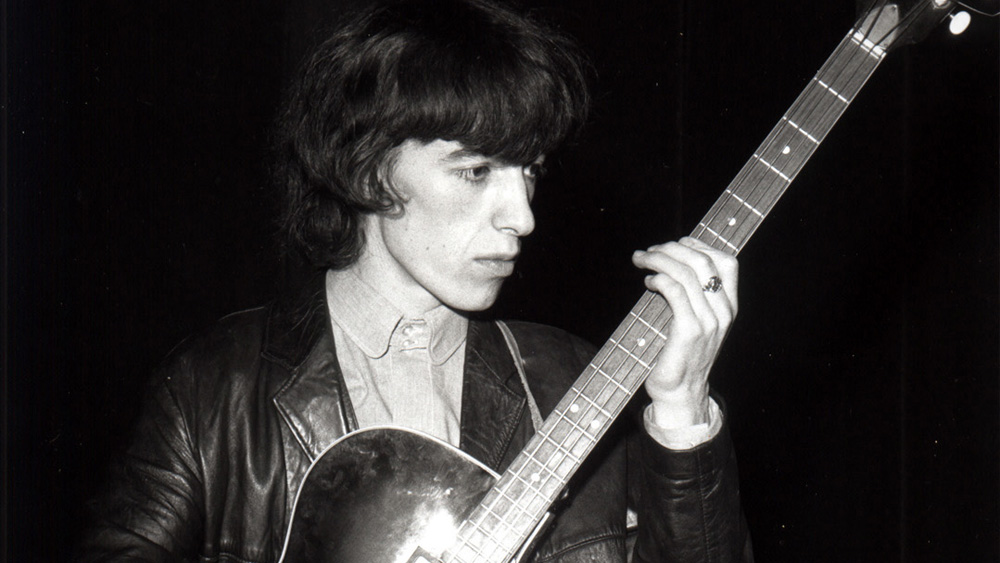Back in the 1970s, the British tax authorities thought it was a good idea to take about 90% of one’s annual earnings, which led multitudes of showbizzers, including a certain British pop-rock-blues band called the Rolling Stones, to bugger off to the South of France where they proceeded to save about 60% of their income and also produce one of the towering rock album masterpieces of the era, “Exile on Main Street.”
Nearly 50 years later, at the South France country home of ex-Stone/writer-producer-musicologist-archivist-and-more Bill Wyman and his wife Suzanne, the Wymans are still celebrating the fruits of the U.K. taxman’s barmy scheme.
“I first came here (St. Paul, about 30 minutes from Cannes) in 1971 and I’ve been here ever since,” recalls Wyman, who’s got three great reasons to encamp locally today and none of them involve dodging taxes.
First of all, despite perfectly lovely digs in both Chelsea and Suffolk back home in the U.K., the restored 17th-century farmhouse he bought here 12 years ago sports a view of the walled city St. Paul de Vence, an expansive blue-tiled swimming pool that could fit the entire British Invasion and enough rooms to house the Wymans, their three daughters and the odd celebrity friend likely to pop in. Wyman’s not name dropping, he’s just being his normally meticulous self when he notes that “Joan Collins, Leslie Bricusse, Michael and Shakira Caine” and other entertainment luminaries of that sort are prone to share his enthusiasm for the Cote d’Azur lifestyle.
Popular on Variety
Secondly, Bill and Suzanne just celebrated their 25th anniversary here, and judging by the photos of the bash they threw at the nearby famed Colombe d’Or restaurant, the celebrants dined well among the Miros, Chagalls and Picassos and fun was had by all.
Thirdly, Wyman’s down here to help promote his newest project “The Quiet One,” a documentary on his life that is being sold in the Cannes Market by Submarine Entertainment.
“Quiet,” directed by Oliver Murray, is a personal passion project whose existence is a result of Wyman’s desire “to tell my story right. I’ve had an unusual life” says the famously self-effacing bass player, who powered the timeless hits of the band who are still Rolling on the road this summer, 56 years after their founding and whose live set today consists almost exclusively of songs Wyman helped build as half of the rhythm section with Charlie Watts. You know the titles, kids: “Satisfaction,” “Paint It Black,” “Start Me Up” etc.
As befits the “Quiet One” moniker, Wyman is paradoxically short on words and long on dedication to preserving his legacy. His archives take up many rooms and include a lifetime of photographing, filming, and collecting everything from recording instruments to tour buttons, posters and an indescribable allotment of artefacts that paint a picture of his life, not just as a rock star, but as the multi-faceted artist who’s also an historian and tinkerer. He famously built the bass and amp kit that helped him lock the Stones gig.
And he’s the opposite of a dilettante: when queried about which of the various interests have consistently held their place in his life alongside the Stonesmanship, he says he’s spent an entire lifetime cultivating “my interest in music, photography, archaeology, history, sport, love of nature, and collecting artefacts – and my archive.”
But though “self-effacing” is the term that often pops up when describing Wyman’s personality both as bass player and conversationalist, it’s clear that “Quiet” is a chance for the 81 year-old Wyman to lay down the fact that he had a life before the Stones, nearly three decades with the band, and nearly three decades living outside the band again. “The best thing about working on the documentary was reliving the nice times,” notes Wyman. “The worst was getting emotional at times.” And not surprising for a fellow who loves art and making it, Wyman found “the most surprising thing was watching scenes come to fruition. There are definite divisions in time in my very unusual life – which will be apparent when the film is finished.”
And there’s certainly nothing “self-effacing” about the importance and scale of what Wyman now sees of his life in rear-view mirror: “This proving to be a positive way of getting things right,” notes Wyman. “But I can’t get everything into the film that I hoped for. My life is a bit like ‘War & Peace.’”










